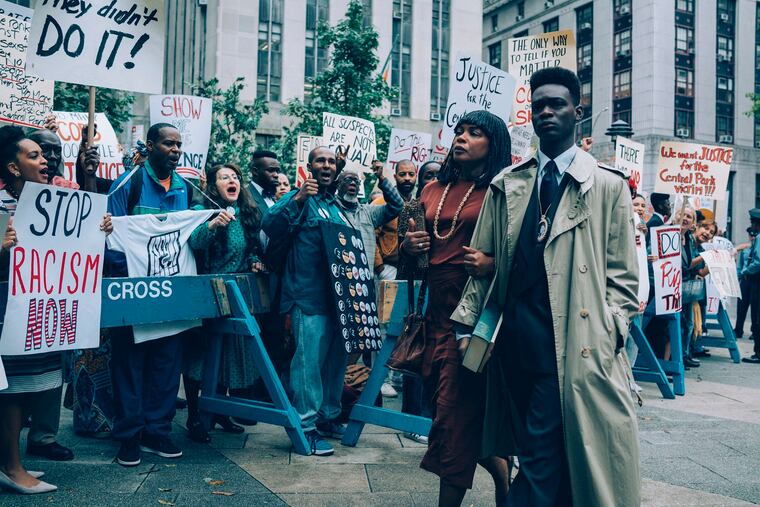‘When They See Us’ is a call for criminal justice reform | Opinion
For too long, we’ve accepted a criminal justice system that dehumanizes people of color. This system was not built by accident, but through years of intentional, racially-biased decision making.

For parents of black children, it’s hard to imagine something worse than learning your child has been arrested.
As I watched When They See Us, I could sense how desperate the parents of those boys were to protect them. Those parents knew that when the police looked at their children they didn’t see boys who were loved by their family and friends; the police saw a pack of predators. But as a public defender for more than two decades, I was struck by the way these parents’ lack of understanding about the criminal justice system left them unequipped to make the best decisions for their children.
When They See Us is more than a story from our past about a broken criminal justice system that no longer exists. Many parts of the story still happen every day. For the Defender Association’s clients and people of color in Philadelphia, it’s a stark reminder of how little things have changed. The hateful words used to describe Yusef, Antron, Kevin, Korey, and Raymond — who were convicted of a crime they did not commit — echo through our society today. Sadly, they’re the same words that appear in Philadelphia police officers’ social media posts.
To change the way the criminal justice system treats people of color, we need to change the way the system sees people of color. To do that we need to hear from the family and friends of people accused of crimes; we need to bring a community into the courthouse.
That is why the Defender Association has partnered with community groups like Mothers In Charge, the Youth Art and Self-Empowerment Project, and dedicated volunteers to launch four participatory defense hubs in neighborhoods across the city which hold weekly meetings open to people facing criminal charges and their families and friends. Staff at our participatory defense hubs help people navigate the criminal justice system. They do this in a variety of ways: They explain how cases move through court, remind people about upcoming court dates, provide referrals to social services and provide attorneys with information that can be used to advocate for better case outcomes.
This community-empowerment model supports individuals and their families as they navigate the criminal justice system. They provide valuable information about the criminal justice process, and how people can best advocate for themselves and their loved ones. Philadelphia is also home to the nation’s first participatory defense hub dedicated to youth and their families, a place where boys like Yusef, Antron, Kevin, Korey, and Raymond and their parents can go for support when it is desperately needed. We’re working to expand this revolutionary participatory defense program to more neighborhoods because we want to give everyone impacted by our criminal justice system an opportunity to have their voices heard.
Focusing on how incarceration impacts not just the individual but the community where they live is also an essential part of our vision to reshape Philadelphia’s pretrial system. Every day someone accused of crime sits in a jail cell because they can’t afford to pay bail is a day they can’t work, a day they can’t be a parent to their children, a day they can’t support a family member or friend in need. As we work toward eliminating cash bail, we are enlisting the support of community groups who have programs that addresses a person’s underlying needs in order to ensure that people accused of crimes can safely return home.
For too long, we’ve accepted a criminal justice system that dehumanizes people of color. This system was not built by accident, but through years of intentional, racially biased decision making. The only way out is through reimagining and rebuilding our system so that every person accused of a crime is seen as an individual who is loved and valued by a community, that every person accused of a crime is someone’s child. All the stakeholders in our criminal justice system need to embrace bold thinking and challenge the racist assumptions that lead to wrongful convictions and mass incarceration.
We cannot turn back time and protect Yusef, Antron, Kevin, Korey, and Raymond but we can protect people of color from the same fate today. To do that we need to open our eyes to the racial bias that influences the decision-making of all the actors in our criminal justice system. Which is why we want our clients, their families, their friends and their communities to know this: We see you.
Keir Bradford-Grey is chief defender at the Defender Association of Philadelphia.